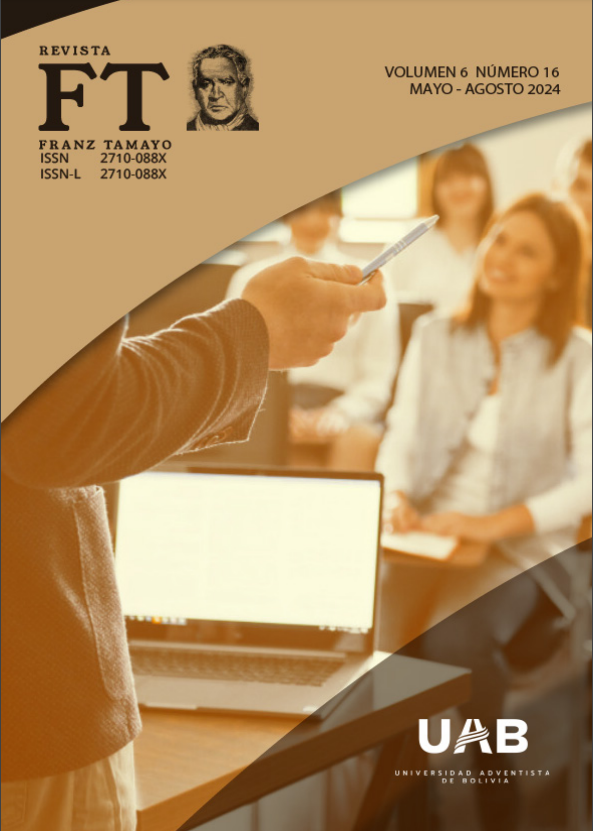Más allá del juego: la resolución de problemas y el pensamiento computacional en primera infancia
Beyond play: problem solving and computational thinking in early childhoodContenido principal del artículo
Este artículo sintetiza la investigación cualitativa sobre el rol del pensamiento computacional en la educación preescolar y su influencia en la resolución de problemas y la creatividad. Mediante un análisis documental en bases de datos como ERIC y PsycINFO, se destaca cómo esta competencia transversal, según autores como Wing (2006) y Bers (2010), mejora las habilidades cognitivas y sociales necesarias para el desarrollo integral en la primera infancia. Estrategias didácticas innovadoras, como la programación en bloques y la robótica educativa, se han identificado como efectivas para fomentar estas habilidades. Además, se subraya la importancia del pensamiento computacional para el trabajo en equipo, la comunicación y la formación de ciudadanos digitales responsables desde una edad temprana. Los hallazgos apoyan la implementación del pensamiento computacional en currículos preescolares, no solo como respuesta a las necesidades futuras sino también como herramienta fundamental para una educación adaptada a la era digital. Se concluye que la integración efectiva de estas habilidades es crucial para preparar a los niños para enfrentar desafíos y oportunidades en la sociedad digital.
This article synthesizes qualitative research on the role of computational thinking in preschool education and its impact on problem-solving and creativity. Through document analysis in databases such as ERIC and PsycINFO, it highlights how this crossdisciplinary competence, as noted by authors like Wing (2006) and Bers (2010), enhances the cognitive and social skills essential for comprehensive development in early childhood. Innovative teaching strategies, including block programming and educational robotics, have been identified as effective in cultivating these skills. Furthermore, the significance of computational thinking in fostering teamwork, communication, and the nurturing of responsible digital citizens from an early age is emphasized. The findings support the incorporation of computational thinking into preschool curricula, not only as a response to future needs but also as a fundamental tool for education tailored to the digital age. It concludes that the effective integration of these skills is crucial in preparing children to navigate the challenges and opportunities of the digital society.
Descargas
Detalles del artículo
Berland, M., & Lee, V. R. (2011). Collaborative strategic board games as a site for distributed computational thinking. International Journal of Game-Based Learning (IJGBL), 1(2), 65-81.
Bers, M. U. (2010). The TangibleK Robotics program: Applied computational thinking for young children. Early Childhood Research & Practice, 12(2).
Brennan, K., & Resnick, M. (2012). New frameworks for studying and assessing the development of computational thinking. Proceedings of the 2012 annual meeting of the American Educational Research Association, Vancouver, Canada, 1-25.
Cassell, J., & Ryokai, K. (2001). Making space for voice: Technologies to support children’s fantasy and storytelling. Personal and Ubiquitous Computing, 5(3), 169- 190.
Clements, D. H., & Sarama, J. (2009). Learning and teaching early math: The learning trajectories approach. Routledge.
Elgort, I., Smith, A. G., & Toland, J. (2008). Is wiki an effective platform for group course work? Australasian Journal of Educational Technology, 24(2), 195-210.
Fessakis, G., Gouli, E., & Mavroudi, E. (2013). Problem solving by 5-6 years old kindergarten children in a computer programming environment: A case study. Computers & Education, 63, 87-97.
Flannery, L. P., & Bers, M. U. (2013). Let’s Dance: How to run a ScratchJr programming workshop in a dance studio. Journal of Information Technology Education: Innovations in Practice, 12, 221-230.
Flannery, L. P., Silverman, B., Bers, M. U., Kazakoff, E. R., & Resnick, M. (2013). Designing ScratchJr: Support for early childhood learning through computer programming. Proceedings of the 12th International Conference on Interaction Design and Children, 1-10.
Jones, L. M., & Mitchell, K. J. (2016). Defining and measuring youth digital citizenship. New Media & Society, 18(9), 2063- 2079.
Kazakoff, E. R., Sullivan, A., & Bers, M. U. (2013). The effect of a classroom-based intensive robotics and programming workshop on sequencing ability in early childhood. Early Childhood Education Journal, 41(4), 245-255.
Resnick, M., & Silverman, B. (2005). Some reflections on designing construction kits for kids. Proceedings of the 2005 conference on Interaction design and children, 117-122.
Ribble, M. (2015). Digital citizenship in schools: Nine elements all students should know. International Society for Technology in Education.
Sullivan, A., & Bers, M. U. (2013). Robot diaries: Broadening participation in the computer science pipeline through social technical exploration. Learning, Media and Technology, 38(2), 232-251.
Sullivan, A., & Bers, M. U. (2016). Girls, boys, and bots: Gender differences in young children’s performance on robotics and programming tasks. Journal of Information Technology Education: Innovations in Practice, 15, 145-165.
Weintrop, D., Beheshti, E., Horn, M., Orton, K., Jona, K., Trouille, L., & Wilensky, U. (2016). Defining computational thinking for mathematics and science classrooms. Journal of Science Education and Technology, 25(1), 127-147.
Wing, J. M. (2006). Computational thinking. Communications of the ACM, 49(3), 33- 35.
Yadav, A., Hong, H., & Stephenson, C. (2017). Computational thinking for all: Pedagogical approaches to embedding 21st century problem solving in K-12 classrooms. TechTrends, 61(3), 391-398.
Zosh, J. M., Lytle, S. R., Golinkoff, R. M., & Hirsh-Pasek, K. (2018). Putting education in “educational” apps: Lessons from the science of learning. Psychological Science in the Public Interest, 19(1), 3-34.

